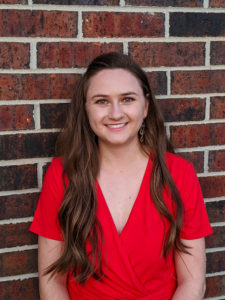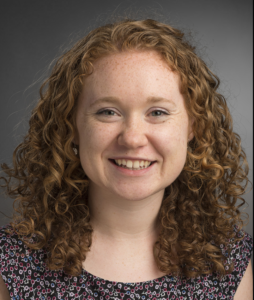
- This event has passed.
Encoding As Scholarship: Preparing Uniquely-Formatted Texts like Galley Proofs and Stationer’s Works
July 20, 2021 @ 12:30 pm - 1:45 pm EDT

Moderator: Kathryn Tomasek, Co-Director, Digital Edition Publishing Cooperative for Historical Accounts; Chair, TEI Executive Board, Wheaton College, Massachusetts
Brett Barney and Ashlyn Stewart, University of Nebraska-Lincoln: “Encoding Chesnutt’s Galley Proofs.”
Charles W. Chesnutt (1858-1932) chronicled with unparalleled insight the complex web of familial, social, and economic relationships that zigzagged across America’s color line in the late nineteenth century—topics still of vital public concern today. In so doing, he left behind a remarkable archival record of manuscripts, including corrected galley proofs of four book-length works. Today, those galley proofs have been encoded in TEI by the staff of the Charles W. Chesnutt Archive, a digital project at the Center for Digital Research in the Humanities at the University of Nebraska-Lincoln.
Ours is the first editorial treatment of these corrected galleys; access to them in any way, in fact, has been difficult and rare. In our presentation, we propose to discuss the strategies we used to encode the proofreading marks that Chesnutt used extensively as well as the galley proofs more generally. First, we will explain our editorial policy and rationale for handling the documents. Next, we will detail our process for encoding the proofreading symbols, many of which have no Unicode representation, even though most of them are standard proofreading characters. Because few projects have undertaken encoding of page proofs, however, even such an important and common character as “dele” posed difficulties. Finally, we will provide some examples of our approaches to encoding more challenging proofreading markup, such as Chesnutt’s use of the “pound” sign to indicate the addition of blank space.
At a moment when the digitization of resources from the African American past is surging, Chesnutt’s work stands out as a vital part of recovery efforts for pre-Harlem Renaissance Black writers. Our encoding of Chesnutt’s corrected galley proofs will offer students and scholars new opportunities to understand the composition process of one of the nation’s finest writers and, we hope, provide a precedent to other projects wishing to edit similar materials.

Brett Barney is a research associate professor at the Center for Digital Research in the Humanities at the University of Nebraska-Lincoln and Senior Associate Editor for the Walt Whitman Archive. He has worked on a variety of projects at the CDRH, and he served two terms (2010-2013) on the TEI Consortium’s Technical Council. He is especially interested in the development of TEI provisions for encoding the temporal aspects of manuscript and print materials.

Ashlyn Stewart is a first-year Ph.D. student in English at the University of Nebraska-Lincoln concentrating on nineteenth-century American literature and digital humanities. She has a dedicated research interest in periodicals from nineteenth-century America, particularly national publications like Harper’s Weekly. At UNL, she works at the Walt Whitman Archive and the Charles Chesnutt Digital Archive.
Lisa Hermsen and Rebekah Walker, Rochester Institute of Technology: “Editing a Rare 19th-Century Stationer’s Works Manual: Encoding as Discovery”
The William Townsend & Sons manuscript collection in the Cary Graphic Arts Collection offers a look into the world of 19th-century stationery bookbinding for the manufacturing of double-entry account books. This collection, dated 1850-1920, is a significant recovery because manuals for stationery binding exist primarily in secondary sources (i.e. Monk and Lawrence, A Text Book of Stationery Binding, 1912). While double-entry accounting had existed for centuries, this collection includes valuable information about not only book history, but also how binding historically influenced finance. For humanists, manuals are also “rich sources” of cultural attitudes (Long, in Information, 2021).
This presentation will describe our use of TEI to markup the idiosyncratic features of one volume. It is nonlinear, containing random missives intermixed with firm expenses. The TEI guidelines have allowed us to encode more than 100 pages to date, but questions remain for the representation of measurements in lists and tables. One table includes this price list: number of books, sizes of books and numbers of pages, sizes of pages, the type and size of paper, the prices of the paper, and the cost of bindings and the boards for the books. The manuscript belongs to a genre of documents–Historical Financial Records—and raises complicated questions about standard encoding for digital scholarship (Tomasek and Bauman, Journal of the Text Encoding Initiative, 2013).
We plan to publish an open, indexed, and searchable website containing full-text transcription. As we engage with TEI guidelines, we are consulting with TEI experts. The Women Writers Project is our primary model and the Accounts of the City of Basel is our model for documenting financial records. This project involves collaborations with students at multiple levels—as employees, contributors, and scholars. As a STEM University with an emphasis in undergraduate research, our institution’s policies align with the Collaborators’ Bill of Rights.

Lisa Hermsen (@StreetSurrey) is the Caroline Werner Gannett Professor of Humanities and a Professor of English at the Rochester Institute of Technology. Dr. Hermsen specializes in the rhetoric of science, technology, and medicine. She has recently served as PI on a NEH Humanities Connections Grant to study “region” and “community” from a host of perspectives: geographical, historical, environmental, and socioeconomic. Students in the grant classes contributed to an on-going digital archive emphasizing the large tailoring industry in 19th c. Rochester, NY. Her ongoing research is with an extensive collection of manuscripts from the workshop of a 19th century English Printer and Stationery Binder, currently housed in RIT’s Cary Graphic Arts Collection.

Rebekah Walker (@rebok03) is the Digital Humanities and Social Sciences Librarian at the Rochester Institute of Technology. In her role, Walker advises RIT’s students, staff, and faculty on methods of digital pedagogy and project implementation. She leads instruction sessions, provides one-on-one consultations, and supports digital project development for the undergraduate digital humanities program, RIT Libraries, and faculty.
This event will be recorded and uploaded to the ADE Youtube Channel.